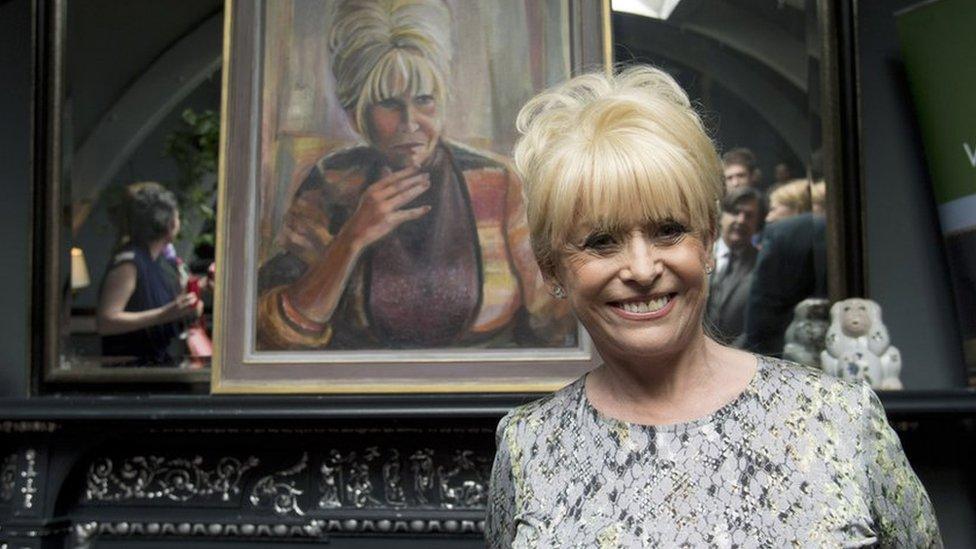Barbara Windsor: How she inspired people with dementia
- Published
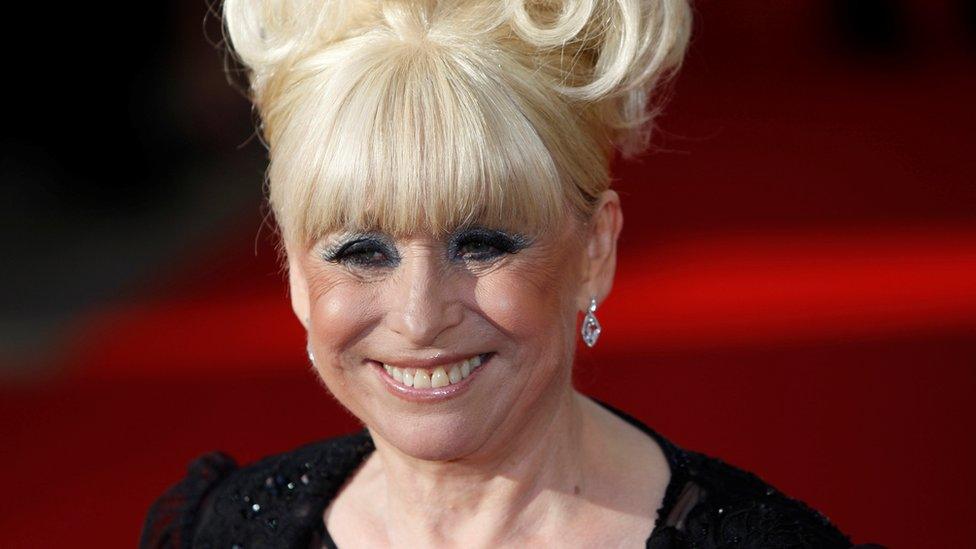
After her diagnosis with Alzheimer's six years ago, actress Dame Barbara Windsor became a campaigner for those living with dementia. Following the star's death at the age of 83, charities have praised her for helping bring the disease out into the open. So, how did she help others in the UK?
Helen Marshall, from Halifax, says Dame Barbara's campaigning made it easier to speak to her mum, Audrey, about her dementia, after she was diagnosed in 2015.
Helen, 50, says she "vividly" remembers how they watched Dame Barbara visiting the prime minister at No 10, where she delivered a letter signed by 100,000 people pleading for better care for people with dementia.
"She was such an icon, in their generation as well as ours. For somebody so famous to come out and talk about it - it was a shift for my mum," she says, explaining that until that point Audrey, 88, never discussed her diagnosis.
"I don't know if she forgot or was in denial, with dementia you don't know."
But after seeing the footage, Audrey acknowledged her condition.
"It was quite visible, the effect [Alzheimer's] had had on [Dame Barbara]. I think that was what resonated with mum."
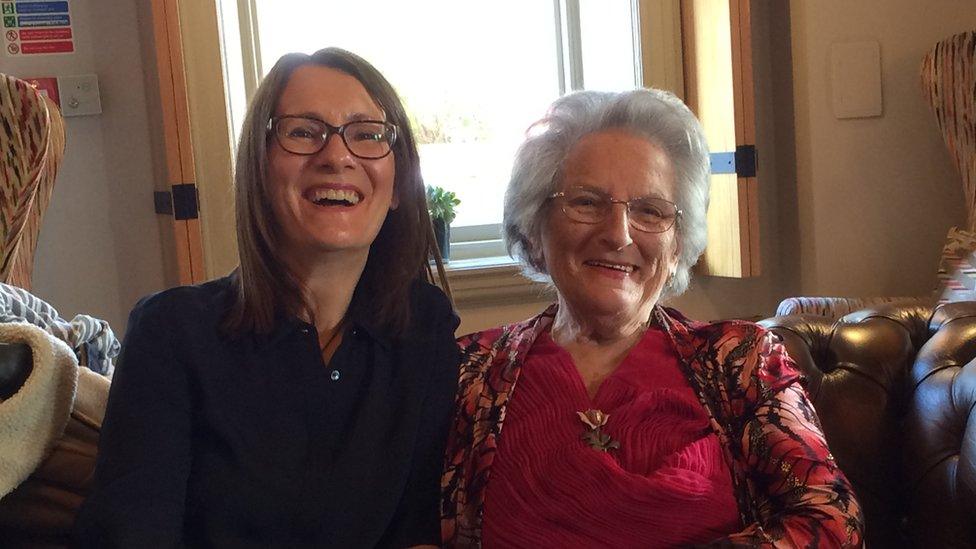
Helen Marshall with her mum Audrey Clayton
Helen also believes attitudes towards those with dementia have changed since Dame Barbara shared "candid" details of the effects of dementia on "every aspect of life".
"I've noticed mum's peers are more able to talk about it," she says.
"There's still a lot more to do though.
"It can be a long time before people are diagnosed so the more awareness people have and the less stigma there is, it might mean diagnoses come quicker."
'I raised £10,000'
Katie Thomas, 48, from Goddington, Oxfordshire, says campaigning by Dame Barbara and her husband Scott Mitchell, was "so important" in the effort to raise awareness and encourage funding to find a cure for dementia.
"They were instrumental in trying to get awareness and out, and in their openness about the disease," she says.
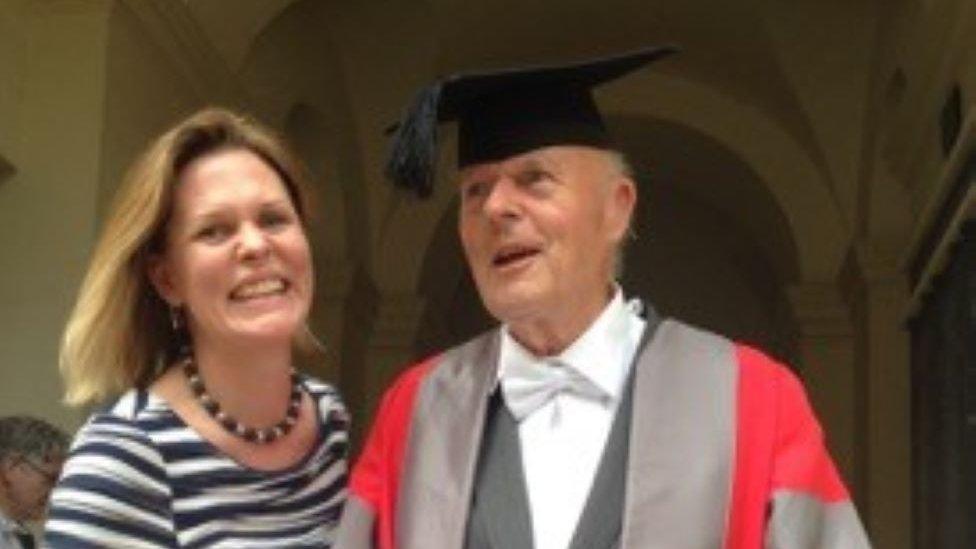
Katie Thomas, with her dad Prof Ceri Peach, who received a Doctor of Letters degree from Oxford University a year after he was diagnosed with Alzheimer's
Katie ran two marathons this year, including the virtual London Marathon, in memory of her father, Ceri Peach - an Oxford University professor who was diagnosed with Alzheimer's in 2015 and died aged 78 in October 2018.
She raised £10,000 for dementia research through the two events - the first completed in her village during the spring lockdown, and the second in Oxford, where her dad lectured in geography at St Catherine's College, this autumn.
Katie says she was inspired to take on the fundraising challenges after cheering on runners taking part in the 2019 London Marathon - in a team called Barbara's Revolutionaries.
"I joined their Facebook page, which [Dame Barbara's husband] Scott was a massive part of, and got to know a lot of people, and started running."
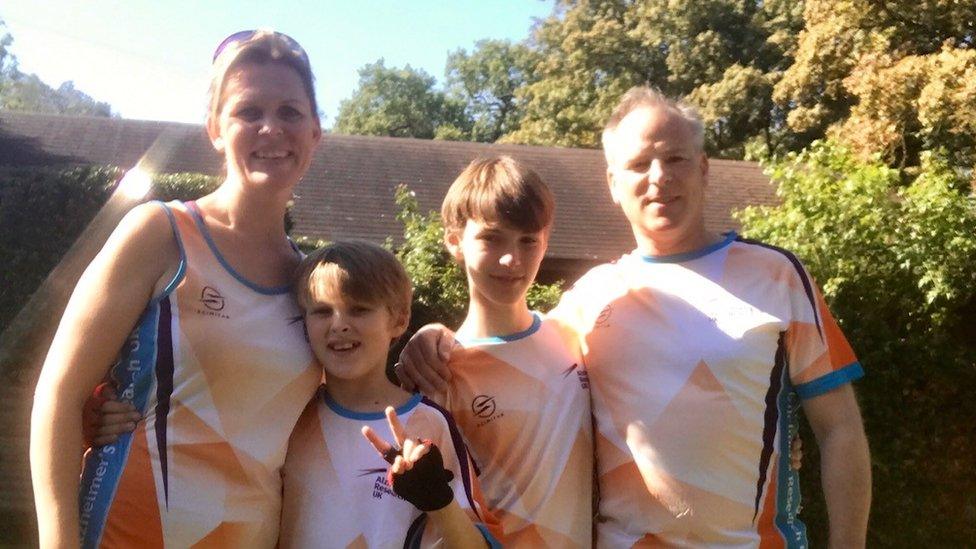
Katie with husband Howard, and her two boys, Will and Charlie, her "greatest cheerleaders"
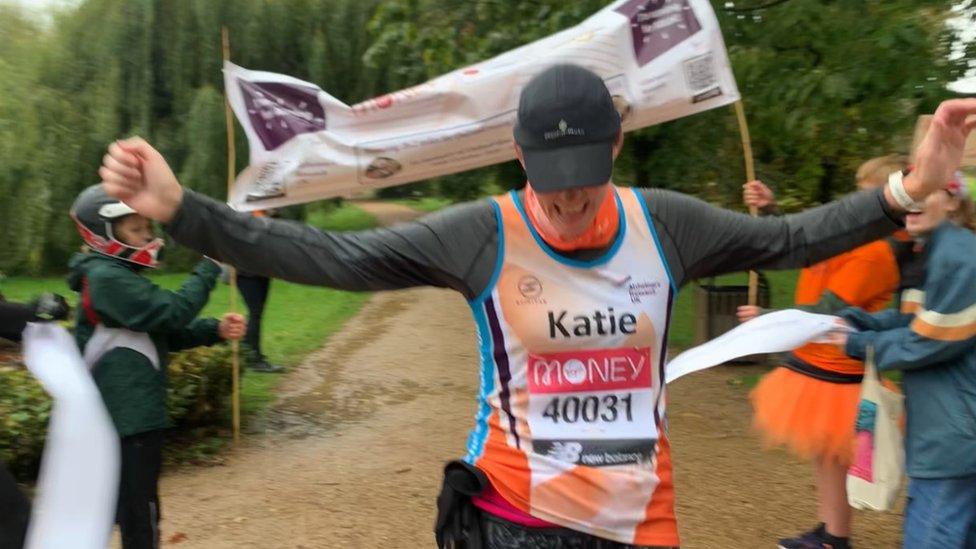
Crossing the finish line in the University Parks in Oxford on 4 October for the virtual London Marathon
The training has since helped with her grief.
"Just getting out. Especially when the lockdown happened, it's just being able to get out in the fresh air and run," she says.
"It's my own time, and time to think things through and think about dad. It's really helped in that way.
"I feel very close to him when I run."

Dementia campaign
Dame Barbara Windsor and her husband, Scott, went public with her condition in 2018, four years after her diagnosis.
The same year, she appeared on a video in aid of a campaign to raise funds and change attitudes towards the condition.
"I'm asking you to make a stand against dementia," she said.
Her husband and former EastEnders co-stars raised more than £150,000 by running the London Marathon in aid of a dementia campaign.
Dame Barbara was credited by her friend and former Albert Square co-star Ross Kemp, who made an ITV documentary on dementia, for helping to change the way people thought about the condition.

Robert Beattie was diagnosed with Alzheimer's three years ago, and says he takes living with the disease "day by day".
He will often forget what room he is in, won't know where the bedroom or bathroom is, and his wife Karen will have to guide him through the process of getting changed.
Karen says Dame Barbara going public about her diagnosis has been important "to get the government talking about it and hopefully do something about it".
"Hopefully the momentum won't stop," she adds.
"And we'll get more people like Rob and me that will go out and talk.
"People inside the houses that have shame, we need you to do the same thing and get this on the platform so that we can get the help that we need."
Downing Street says the government has committed to "significantly increasing research funding, over a number of years to help improve detection and care for people living with dementia".
Related topics
- Published11 December 2020
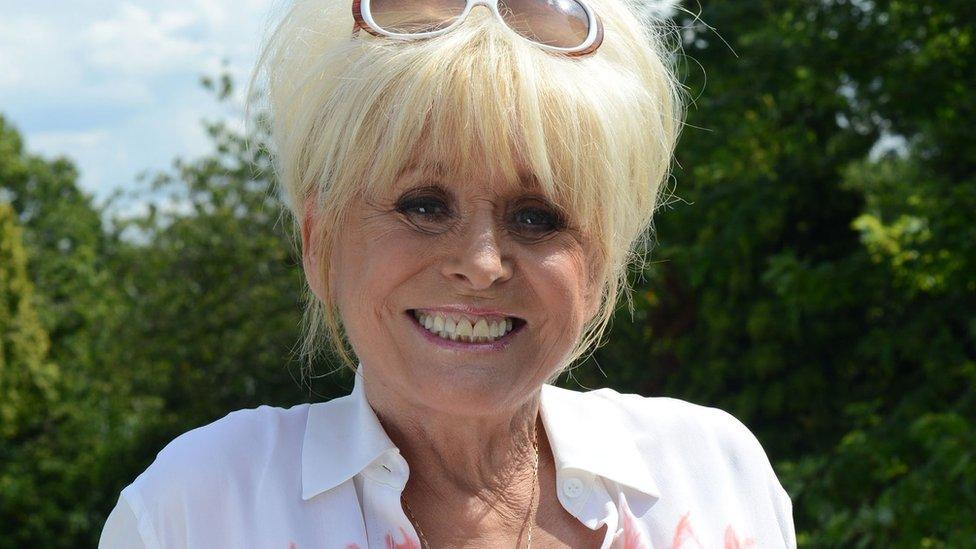
- Published11 December 2020
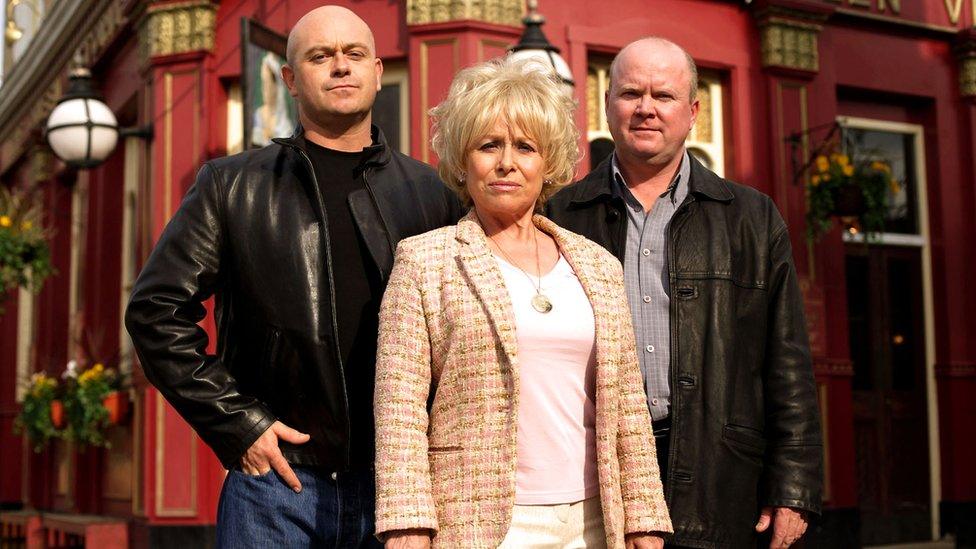
- Published11 December 2020
